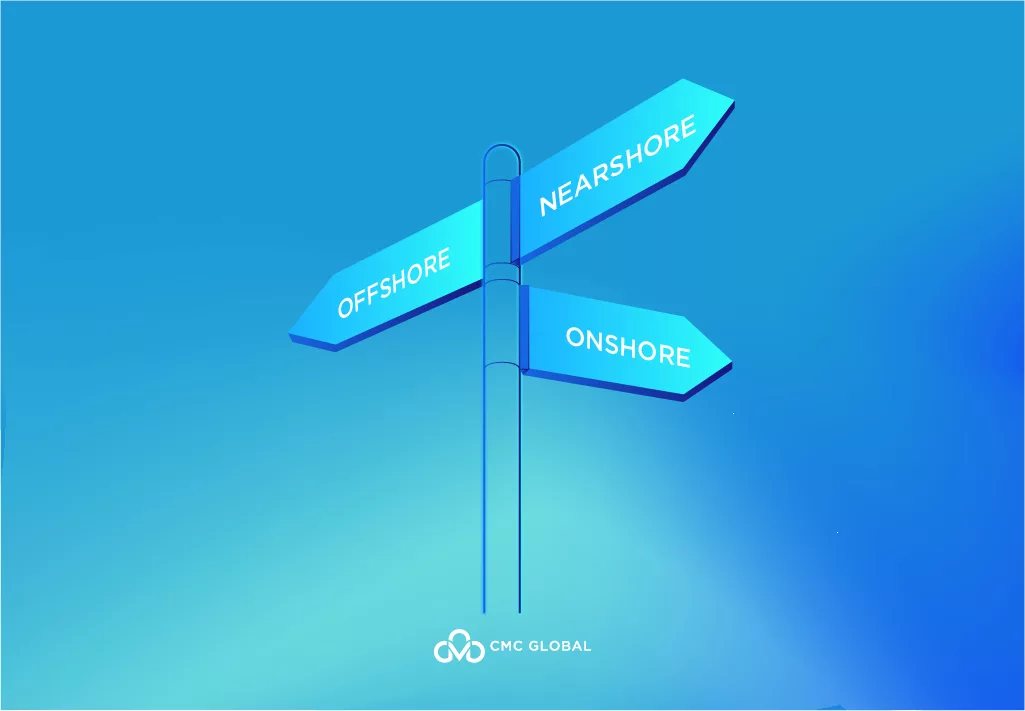Globalization has a deep effect on the growth and transformation within organizations across domains, one of which is IT Outsourcing (ITO). This globalization has introduced outsourcing within businesses by showing them ways to get in touch with multiple providers around the globe. Global economics are also turning outsourcing software development into a requirement and not an option anymore. Because IT outsourcing services offer businesses numerous benefits, especially for international and multinational corporations. In this article, we take a look at how IT Outsourcing can benefit most companies and different ways to practice it.
IT Outsourcing and Its Benefits
IT outsourcing is the contractual partnership between a client and a vendor, in which the client uses an external service provider (the vendor) to deliver all or parts of the IT functions required by a business. The services include managing infrastructure, directing strategy, or running the service desk. Whether it is small, medium-sized, or large businesses all are taking advantage of outsourcing.
Here are some of the major reasons why more and more businesses would choose to outsource their IT functions:
- Cut expenses spent on hiring, infrastructure, and training resources for IT functions. These expenses are high and complicated because the working rate of an IT staff is often above average. Its functions also require huge numbers of know-how, hardware, and software infrastructure. IT outsourcing becomes a rescuer for companies to take advantage of best-in-class talent and resources.
- Become more focused on their core business functions. Because in many businesses, IT activities often support their core activities such as sales, bidding, or manufacturing. Thanks to the quality performance of IT Outsourcing, they can focus their major time and effort to create innovation in their domains.
- Scale-up and scale-down resources as per the projects. IT Outsourcing providers can accommodate almost any project size, from a few people to thousands of people. Therefore, unlike other services, IT Outsourcing can be kicked off as a proof of concept or a mock project before being scaled up to apply to the whole business.
- Drive business transformation using the expertise of other businesses. This helps businesses shorten their path when approaching markets and customers, actively making a difference thanks to the experience of those who have gone before.
Some other advantages include:
- Transform business shape using the latest technologies
- Lack of in-house expertise.
- Mismanaged responsibilities and services.
Different types of IT Outsourcing

A company may use one provider for all its IT requirements or multiple service providers to deliver different elements. Over time, IT outsourcing has turned out to be simple and the best part is that it is not restricted to one method but there are many different ways to perform outsourcing. Different types of IT outsourcing allow businesses to achieve success by building cutting-edge software solutions, customized operation systems, and focusing on their core values.
In this blog, we will be exploring different types of IT Outsourcing, through which businesses can perform outsourcing and gain unexpected business benefits. For example, what is the difference between a managed service provider and offshore outsourced IT support? We’ll break down the various terms used and discuss the different types of outsourcing for your information.
So, let’s dive below following definitions and concepts:
Offshore IT Outsourcing
Offshore IT outsourcing means that your IT service provider will be located overseas. Typically, this will be between a firm in developed nations and a vendor in developing regions. It has no limitation in size, complexity, or technical field, ranging from cloud computing and data processing to artificial intelligence.
The vendor is often a politically stable country such as China, India, or Hungary. This type of outsourced IT allows businesses to take advantage of tax savings, local workforce, and cutting costs due to lower payment rates. Because the wages are relatively low in developing countries compared to the developed country where the clients are based, the client can quickly scale up your support as your business needs grow.
To understand more about offshore developments and their advantages, please visit our other article here.
Onshore Outsourcing
On the contrary, onshore outsourcing means the client would use the local companies and workforce within the same country where they are based. So it is also called domestic outsourcing. There are some outstanding benefits such as reducing language and culture barriers. Because the onshore IT providers will speak your language, it is much more accessible than services based in other countries. They are also in the same time zone so it is easier to control and communicate.
However, this type of IT outsourcing is generally less popular because it is much more expensive than offshore models. Nowadays, most offshore centers have developed their foreign language capabilities to provide the most quality service. Meanwhile, many of them also provide 24/7 and end-to-end service to compete with the IT onshore competitors.
Nearshore Outsourcing
Nearshore outsourcing means that your IT support will be based in a nearby country. The advantage of nearshore outsourcing is that there is often no large difference in working timezone between the client and the vendor. It is convenient because you can get the support you want at the time you need it. In addition, it also relates to lower taxings.
With this type of outsourcing, there may be less of a language and cultural barrier than you might experience with offshore outsourcing. However, the cost is relatively higher than offshore software development.
On the other hand, based on the project scopes, we have some popular terms:
Managed Services
One of the most common forms of IT outsourcing is managed services. A managed service provider is an external IT company that will provide full network management for your business.
Managed Services include:
- Call-center
- Virtual private networks
- Firewalls
- Monitoring activity across the network
- VoIP and other communication software
- Incident recovery support
Managed IT services take the stress out of maintaining your IT infrastructure.
Cloud Computing
Contracting an external service provider to provide IT-related services over the internet, such as Infrastructure-as-a-Service, Platform-as-a-Service (PaaS), and Software-as-a-Service (SaaS).
Other similar types:
- Application/software development
- Web development/hosting
- Application support or management
- Technical support or help desk
- Database development or management
- Telecommunications
- Infrastructure hardware, software, and network installation and support
- Networking and communications
- Disaster recovery (DRaaS)
- Data center management
- Data storage
- Security virus, spam, and other online threat protection

Final Thoughts: How to Choose Your IT Support?
This is not an easy question because there is no such thing as a generalized process or methodology to choose exactly what type of services your company should choose. The above article has presented all types of outsourcing models and helped you understand the advantages and disadvantages of each outsourcing method.
Before choosing your IT outsourcing services, do plenty of research. Make sure that you are happy with the services that they are offering.
If you’ve figured out your choices, you’ll need to determine which services your organization can collaborate with the vendor and where to find the most appropriate vendors and resources. To give the final decision, please consider further factors such as connectivity, efficiency, and expense to ensure you choose the best outsourcing approach for your needs.
But you may get lost in all of the terminologies. So, find reviews of the IT service provider that you are interested in using, and make sure that they have a high rating.
For professional and reliable IT outsourcing, get in touch with our consultant team- CMC Corp and CMC Global.
Our experience with businesses from almost all types of domains and industries has enabled companies to tap into high performance and get the best business outcomes.




